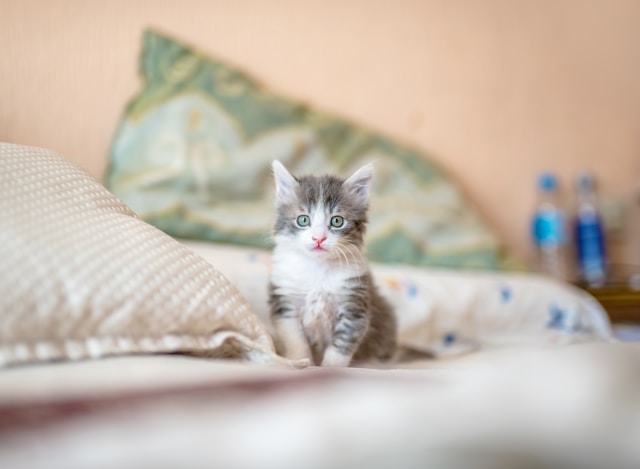Regular vet checkups are a cornerstone of maintaining your cat’s health and well-being. These routine visits help ensure that any potential health issues are identified and addressed early, allowing your feline friend to enjoy a longer, healthier life. This comprehensive guide delves into why regular vet checkups are essential, what to expect during these visits, and how they contribute to your cat’s overall health.
1. The Role of Regular Vet Checkups
Early Detection of Health Issues
- Preventive Care: Regular checkups allow veterinarians to monitor your cat’s overall health and detect any issues before they become serious problems.
- Silent Symptoms: Cats are adept at hiding discomfort or illness. Routine exams help uncover hidden conditions that may not be immediately apparent.
Vaccination and Preventive Measures
- Vaccination Updates: Regular visits ensure that your cat receives necessary vaccinations on schedule to protect against common feline diseases.
- Parasite Control: Vets can provide treatments for fleas, ticks, and worms, as well as preventive measures to avoid infestations.
2. What to Expect During a Vet Checkup
Physical Examination
- General Health Assessment: The vet will examine your cat’s eyes, ears, mouth, and body condition to assess overall health.
- Vital Signs: Measurement of vital signs, including temperature, heart rate, and respiration rate, helps identify potential health issues.
Diagnostic Tests
- Laboratory Tests: Routine blood work and urine tests may be conducted to check for underlying health problems such as diabetes or kidney disease.
- Screening Procedures: Depending on your cat’s age and health status, the vet may recommend additional screening tests like X-rays or ultrasounds.
Discussing Health Concerns
- Behavioral Changes: The vet will inquire about any changes in your cat’s behavior, appetite, or litter box habits to identify potential issues.
- Diet and Lifestyle: Discussions about diet, exercise, and lifestyle can help tailor recommendations for maintaining your cat’s health.
3. Benefits of Regular Vet Checkups
Health Maintenance
- Timely Interventions: Regular checkups allow for timely interventions for any emerging health issues, potentially reducing the need for more invasive treatments later.
- Longevity: Routine care helps maintain your cat’s health and can contribute to a longer, healthier life.
Behavioral and Dietary Guidance
- Customized Advice: Vets can provide personalized advice on diet, behavior, and care based on your cat’s specific needs and health status.
- Preventive Measures: Early recommendations on preventive measures can help avoid common health problems and improve quality of life.
Improved Quality of Life
- Comfort and Well-being: Regular checkups ensure that your cat remains comfortable and free from pain or discomfort due to untreated conditions.
- Peace of Mind: Knowing that your cat is receiving regular professional care provides peace of mind for pet owners.
4. Frequency of Vet Checkups
Kittens and Young Cats
- Initial Vaccinations: Kittens should have a series of vaccinations and checkups during their first year of life, typically every 3 to 4 weeks until they are around 16 weeks old.
- Growth Monitoring: Regular visits help monitor growth and development, ensuring that your kitten is on track.
Adult Cats
- Annual Exams: Adult cats should have a vet checkup at least once a year to maintain their health and address any emerging issues.
- Preventive Care: Annual visits ensure that vaccinations and preventive treatments are up to date.
Senior Cats
- Twice-Yearly Exams: Senior cats, generally considered to be over 7 years old, should have checkups every 6 months to monitor age-related health issues.
- Special Considerations: Older cats are at higher risk for conditions like arthritis, dental disease, and kidney disease, requiring more frequent monitoring.
5. Preparing for a Vet Visit
Health History and Observations
- Document Symptoms: Keep a record of any symptoms or changes in behavior to discuss with the vet.
- Provide Information: Share your cat’s health history, including past medical issues, medications, and dietary habits.
Transportation and Comfort
- Safe Transportation: Use a secure carrier for transporting your cat to the vet, and make the carrier a familiar and comfortable space.
- Calm Environment: Try to keep your cat calm before and during the visit. Familiar blankets or toys can provide comfort.
6. Addressing Common Concerns
Fear of the Vet
- Gradual Desensitization: Familiarize your cat with the carrier and vet visits through positive experiences and gradual desensitization techniques.
- Comfort Items: Bring along favorite toys or bedding to help ease your cat’s anxiety.
Cost of Vet Care
- Budgeting: Plan for regular vet visits as part of your cat’s overall care budget to avoid unexpected expenses.
- Pet Insurance: Consider pet insurance to help manage the costs of routine and unexpected veterinary care.
7. Conclusion
Regular vet checkups are vital for ensuring the health and well-being of your cat. These routine visits play a crucial role in early detection of health issues, maintaining preventive care, and providing personalized advice. By adhering to a regular checkup schedule, you contribute to your cat’s overall quality of life and longevity. Remember to prepare adequately for vet visits, address any concerns, and work closely with your veterinarian to keep your feline friend happy and healthy.











Leave a Reply